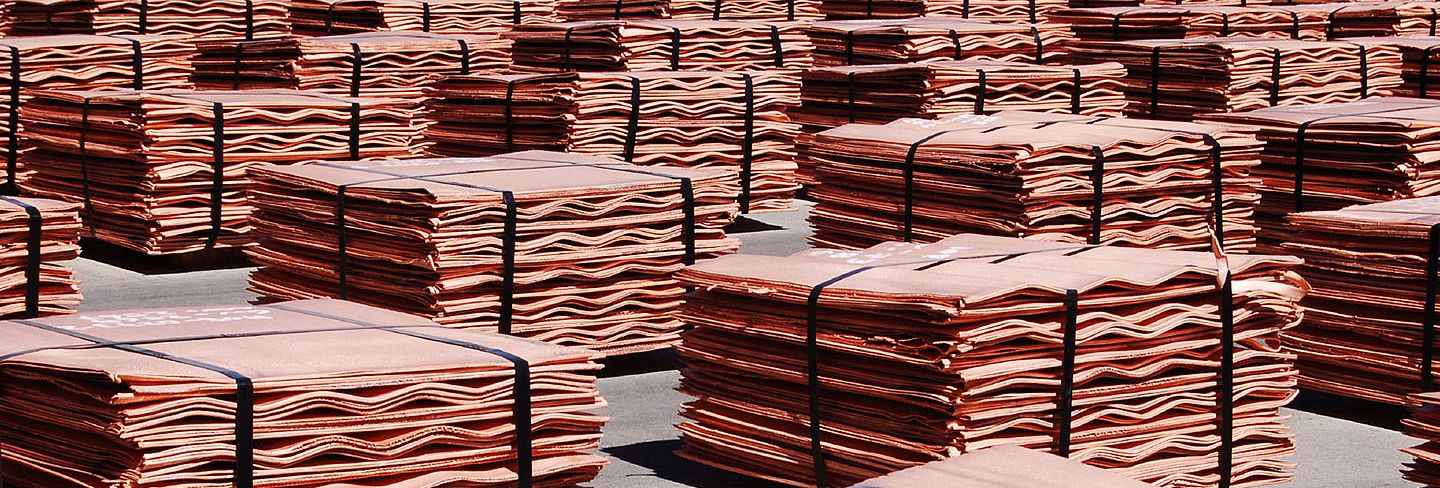From Art to Capability: The Many Applications of One-of-a-kind Copper Products
From Art to Capability: The Many Applications of One-of-a-kind Copper Products
Blog Article
Exactly How Copper Products Add To Sustainable Practices in Numerous Industries
Copper items are progressively recognized for their significant contributions to sustainable techniques throughout multiple markets, driven by their fundamental homes such as resilience, recyclability, and efficiency. In renewable resource systems, for instance, copper improves the functionality of solar and wind technologies, while its application in building and construction decreases waste through longevity. Furthermore, the material's antimicrobial characteristics offer promising advantages in healthcare settings. As industries look for to embrace more lasting methods, the function of copper can confirm critical in attaining environmental objectives. What ramifications might this have for future innovations in sustainability?
Copper in Renewable Resource
Copper plays an essential duty in the innovation of renewable resource modern technologies, acting as a crucial conductor in different applications. Its phenomenal electrical conductivity and resistance to rust make it a perfect material for electric wiring, which is essential in photovoltaic panels, wind turbines, and power storage systems. In solar photovoltaic or pv systems, copper is made use of in the affiliations and circuitry, making it possible for effective energy conversion from sunshine to electricity.
In wind power, copper is essential to the generators and transformers that convert kinetic power right into electrical power, making certain ideal efficiency and dependability. Furthermore, the need for electrical lorries (EVs) is enhancing, with copper being a crucial element in batteries, electric motors, and billing facilities. The transition to EVs considerably improves the demand for copper, as these lorries usually use four times more copper than standard inner burning engine lorries.
As the globe seeks to reduce climate change and shift to sustainable power sources, copper's duty becomes increasingly crucial. The material not just boosts the efficiency and longevity of sustainable energy systems yet likewise sustains the wider goal of decreasing greenhouse gas exhausts and advertising a sustainable future.
Eco-Friendly Construction Products
Recently, there has been a remarkable change in the direction of the adoption of green building products in response to growing ecological worries. This adjustment is motivated by the requirement for sustainable choices that lessen ecological impacts while preserving structural honesty and visual appeal.
Copper, understood for its toughness and recyclability, has actually become a crucial gamer in this industry. It can be made use of in roof, pipes, and electrical systems, contributing to energy efficiency and minimizing waste. Copper's durability means fewer substitutes in time, more improving its sustainability account.
Additionally, materials such as bamboo, reclaimed timber, and recycled steel are gaining popularity. These alternatives not only provide lowered environmental impact but likewise promote resource preservation. As developing codes increasingly stress sustainability, contractors and designers are integrating these materials right into their tasks, cultivating advancement in design.
The boosting fostering of environmentally friendly building materials mirrors a wider dedication to sustainability in the constructed environment. By prioritizing these products, the building and construction sector can substantially lower its carbon footprint, align with regulative standards, and sustain a much healthier community for future generations. This pattern notes a critical action in the direction of a much more sustainable future in building.
Copper's Role in Medical care
Recent research studies have actually highlighted the considerable function of copper in health care setups, specifically because of its antimicrobial buildings. Copper surface areas have actually been revealed to reduce the presence of microorganisms, consisting of bacteria and viruses, by approximately 99.9% within a short duration. This amazing effectiveness makes copper an invaluable product for high-touch surface areas in healthcare facilities, such as doorknobs, bed rails, and IV Get More Information poles, thereby adding to enhanced infection control steps.
In enhancement to its straight antimicrobial effects, copper additionally contributes in the broader context of hospital sustainability (Copper Products). By integrating copper into clinical tools and home furnishings, medical care centers can minimize the incidence of healthcare-associated infections (HAIs), which not only enhances patient results however likewise decreases the costs connected with extensive healthcare facility keeps and additional therapies
In addition, copper's resilience and recyclability align with sustainable methods, enabling for liable source management. As medical care systems progressively prioritize both patient safety and security and environmental stewardship, the integration of copper products is becoming extra common. This double advantage emphasizes copper's vital contribution to a healthier, more secure, and much more lasting health care environment.
Sustainability in Transportation

Additionally, copper's toughness and corrosion resistance add to the long life of transportation infrastructure (Copper Products). In rail systems, as an example, copper components enhance the reliability and efficiency of signaling and power systems, essential for decreasing hold-ups and power consumption. In addition, copper's function in sustainable power systems, such as solar and wind, supports lasting transport options by providing tidy power for electrical transportation alternatives
Investments in copper modern technology not just foster sustainability however additionally boost financial growth and task creation in green markets. As markets strive to meet rigid environmental policies, the application of copper products in transportation emerges as a pivotal strategy in accomplishing sustainability objectives and promoting a cleaner, much more efficient future.
Copper and Round Economic Situation
As the world increasingly embraces sustainability, the function of copper in the circular economic climate becomes ever before a lot more considerable. Copper's intrinsic homes-- such as its recyclability, conductivity, and sturdiness-- placement it as an essential product in a resource-efficient economic climate. The round economic climate aims to reduce waste and make best use of source usage via recycling and reusing materials, and copper excels in this respect.
The metal can be reused forever without loss of quality, making it a perfect prospect for lasting techniques across various fields, including building, electronic devices, and renewable power. By recuperating and recycling copper from end-of-life items, industries can substantially minimize the requirement for virgin products, thereby decreasing ecological impacts connected with mining and Going Here handling.
Furthermore, the combination of copper into circular economic climate frameworks not just preserves sources yet also promotes advancement. Services that focus on copper reusing add to a more lasting supply chain, improving their competition while lining up with regulative demands and consumer preferences for ecologically accountable items.
Verdict
Finally, copper products considerably contribute to sustainable practices throughout several fields. Their important duty in improving renewable resource technologies, advertising green building products, supporting infection control in health care, assisting in sustainable transport, and symbolizing the principles of a circular economy underscores the versatility and relevance of copper. By incorporating copper right into various applications, industries can achieve higher effectiveness, minimize ecological impact, and straighten with global sustainability goals, ultimately fostering a much more lasting future.

Copper's outstanding conductivity makes it a recommended product in electrical automobile (EV) systems, enhancing energy performance and performance. In addition, copper's function in renewable energy systems, such as solar and wind, supports sustainable transportation solutions by supplying tidy energy for electrical transportation choices.
Their important duty in enhancing renewable energy modern technologies, promoting eco-friendly building and construction materials, supporting infection control in medical care, facilitating sustainable transportation, and personifying the principles of a round economic situation emphasizes the flexibility and relevance of copper.
Report this page